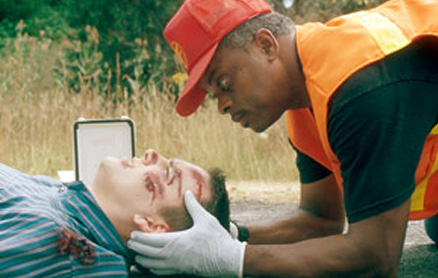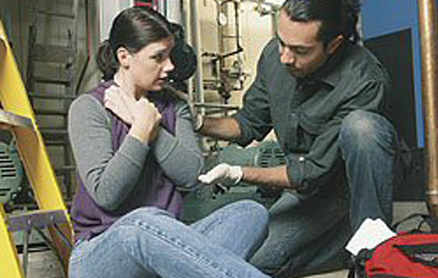Emergency Care Basic (OSHA) First Aid Training
Infant, Child & Adult -Basic First Aid Training
The FIRST AID Emergency Care training program is designed to train individuals and corporations, which require training in basic first aid skills.
This program will provide first aid training to students, giving them the skills necessary to manage illnesses and injuries until the arrival of EMS. Emergency Care is designed to complement cardiopulmonary resuscitation (CPR) training in order to meet OSHA requirements for first aid training in the workplace. The certification is good for at least two years and in some cases three years.
This program offer these advantages to students and facilitators:
- Easy-learning, low-stress class environment
- Excellent printed support materials
- All materials digital work book, wallet card and certification card all issued at the class and included in the class fee.
- Lots of confidence-building, hands-on practice
- Award-winning videos
- Materials in English or Spanish


Emergency Care (First Aid only) covers:
- Circles of Care Concept
- Initial Assessment
- SETUP (Scene Assessment)
- Assess Responsiveness
- Activate
- Control of Bleeding
- Tourniquets
- Hemostatic Dressings
- Amputations
- Impaled Object
- Impaled Object in Eye
- Open Chest injury
- Open Abdominal injury
- Managing Shock
- Internal Bleeding
- Introduction to Illness and Injury
- Warning Signs of Medical Illness
- Chest Pain – Heart problems
- Breathing Problems
- Asthma
- Severe Allergic Reaction
- Use of an Auto Injector (EpiPen)
- Practice with EpiPen
- Altered Mental Issues
- Fainting
- Stoke
- Diabetic Issues
- Seizure
- Mechanism of Injury
- Spinal injury
- Neck & Back problems
- Brain injury
- Concussion
- Broken Bones
- Piosoning
- Burn
- Heat and Cold related problems
- Cal-OSHA Heat Safety Requirements
- Emergency Moves
- Managing Specific First Aid Problems
- Performing a Physical Assessment
- Obtaining a Patient History
- Emotional Impact of Providing First Aid
- And More…

